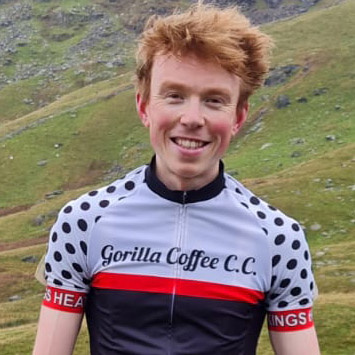Recovering physically is just one step to bouncing back from a cycling crash.
Even after road rash has healed, broken bones have fixed and concussion symptoms have eased, the mental scars may linger.
But if you accept what’s happened and overcome mental health issues (possibly with help from a therapist), a cautious return to cycling can be done.
We’ve asked Erik Nohlin, leader of design at Specialized and Globe, elite gravel racers Lauren de Crescenzo and Ian Boswell, and WorldTour professional Michael Valgren how they recovered psychologically from major cycling crashes.
Acceptance
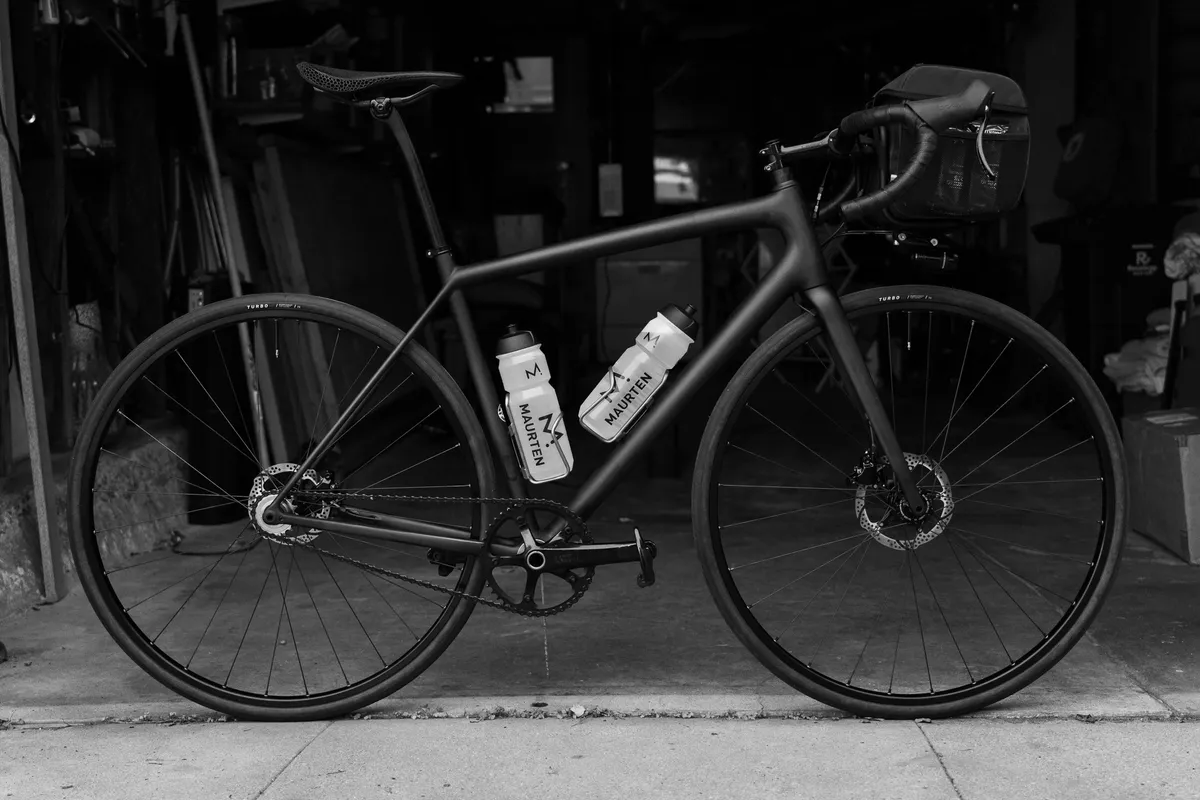
Erik Nohlin was descending a hill in San Francisco, California, when a driver pulled out of a car park into his path.
Nohlin smashed into the side of the car, continued over the bonnet and hit the tarmac at an estimated speed of 35km/h.
The custom-built Specialized Aethos he was riding was destroyed, but he didn’t break any bones.
He realised days later he was concussed from hitting his head against the side of the car.
It was October 2020 with emergency departments full of Covid-19 patients, so Nohlin decided not to go to the hospital.
He regrets this decision for several reasons, including the fact it delayed his acceptance of the severity of the incident.
“I never embraced how f****d up I was because I'm an ultra-distance cyclist,” says Nohlin.
“I know how to suffer and brush things off.
“I also know how important cycling is to me. So I decided it's hurting everywhere and I'm bruised and f******d but I'm going to get back on the bike and I'm fine.”
Despite his initial reluctance to seek treatment, Nohlin was medically diagnosed with post-traumatic stress disorder in 2021.
Get back to normal
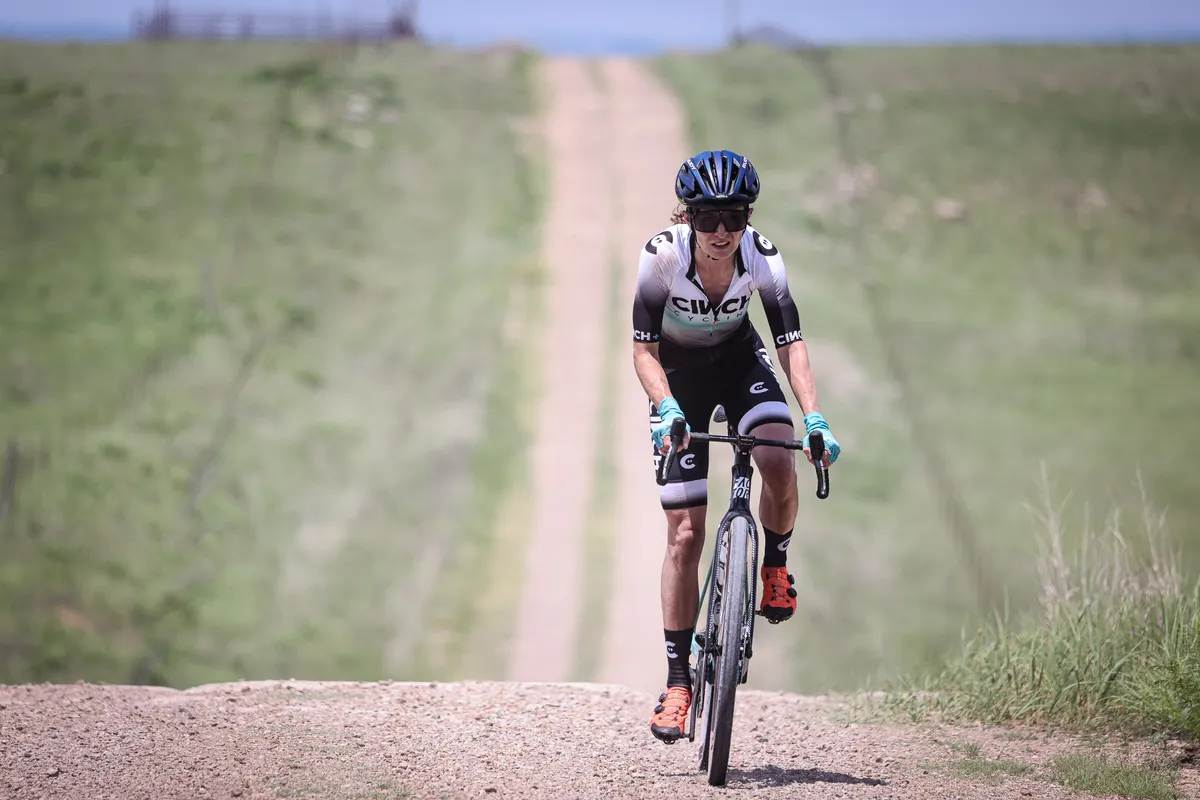
Before regaining the mental ability and will to ride your bike again, you need to return to normal life. For some riders, this in itself can be a long process.
Lauren de Crescenzo won the women’s Unbound 200 in 2021. Before that, she took two years to recover from a traumatic brain injury (TBI) sustained when she crashed in a professional road race in 2016.
When she was leading out a teammate for a sprint, her handlebar got tangled in metal fencing on the side of the road. She flipped forward onto her head.
Due to post-traumatic amnesia, she has no recollection of the crash or of the three weeks she spent in intensive care afterwards.
“I think not being able to remember those first three weeks really helped me because I feel like it's your body's way of protecting itself,” says De Crescenzo.
“My brain took about two years to get back to a new state of normal.”
Only then did she successfully attempt a full return to road cycling.
Talk about it
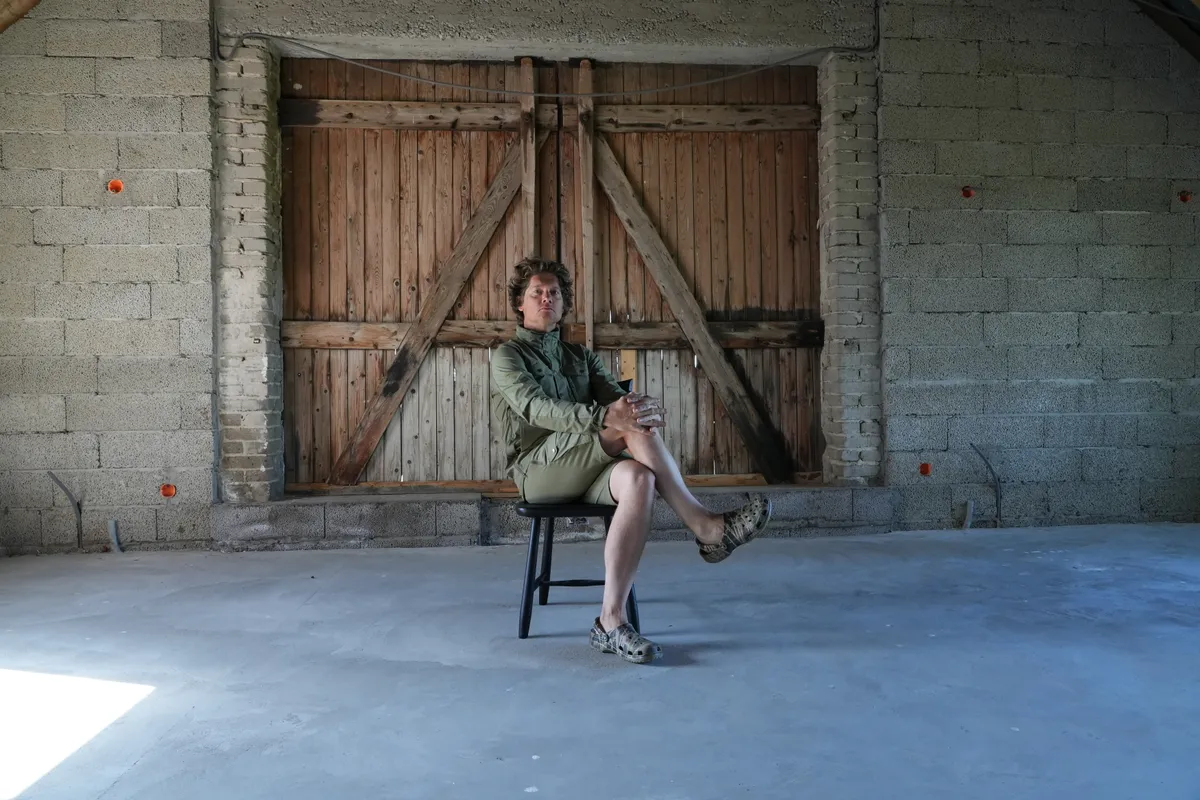
All four riders we spoke to say therapy helped them recover from the mental consequences of their crashes.
For De Crescenzo and Nohlin, the worst consequence of their TBI was depression.
Therapy sessions taught Nohlin he had been through a “near-death experience”.
He would “freeze up” while cycling and eventually avoided bikes altogether. His therapist told him this was because he had realised the damage riding a bike could do to him.
For a bike designer and accomplished long-distance cyclist, this resulted in a “complete loss of identity”.
Eight months on from the crash, following several failed attempts to restart cycling, Nohlin was referred to a psychotherapist.
Using a therapy technique called ‘habit control’, Nohlin gradually began riding again.
Ian Boswell, who won the men's Unbound 200 in 2021, also says therapy helped him deal with the uncertainty surrounding his return to the bike.
Having been forced to retire from the WorldTour at the age of 28, therapy enabled him to feel satisfied with what he’d achieved to date.
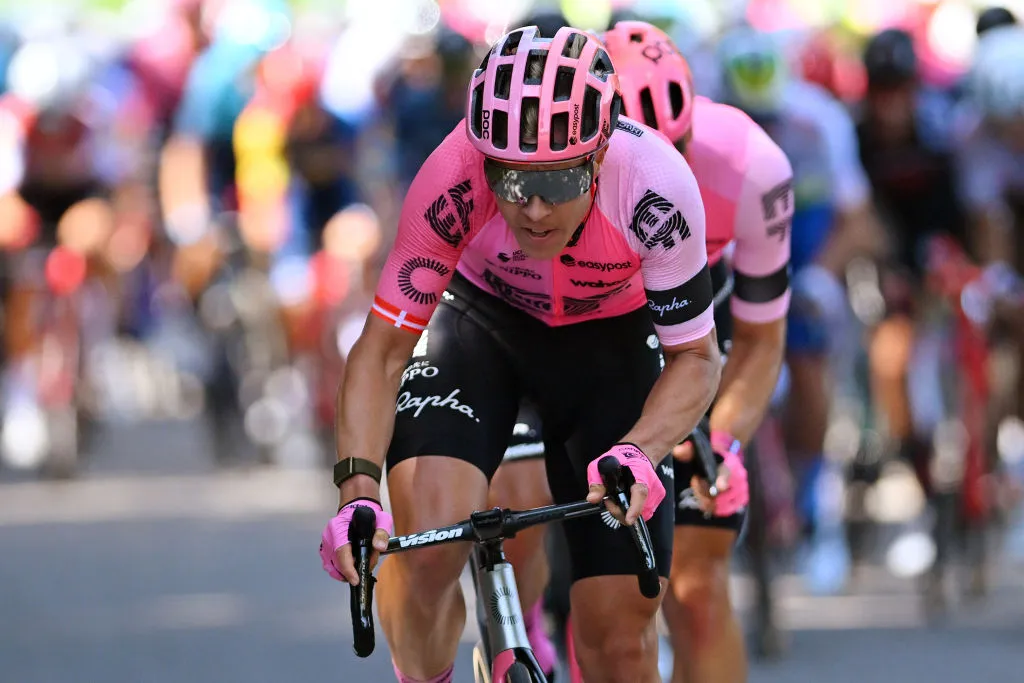
Valgren, meanwhile, says he tends to be a “closed book” and his wife, who is a psychologist, helped him open up.
Without the support of his team, sports psychologist and family, the EF Education-EasyPost pro says: “I could have fallen into a black hole, I could have got depressed.”
De Crescenzo used a combination of occupational and speech therapy at a rehabilitation centre and physiotherapy at a hospital.
She says studying to qualify as an epidemiologist provided a welcome distraction from her inability to race.
But speaking to other cyclists helped with the final step of recovery, according to De Crescenzo.
“Talking to other cyclists is how I got back on the bike.
“For me at least, that might even have been more valuable than talking to a therapist,” she says.
De Crescenzo says restarting road cycling with a former professional, Timmy Duggan, who recovered from a TBI helped her regain confidence.
“That's why I'm very open to talking about my experience to other cyclists who go through the same thing.
“Lots of people reach out to me for inspiration. I say that on the other side, it does get better,” she explains.
Consider medication
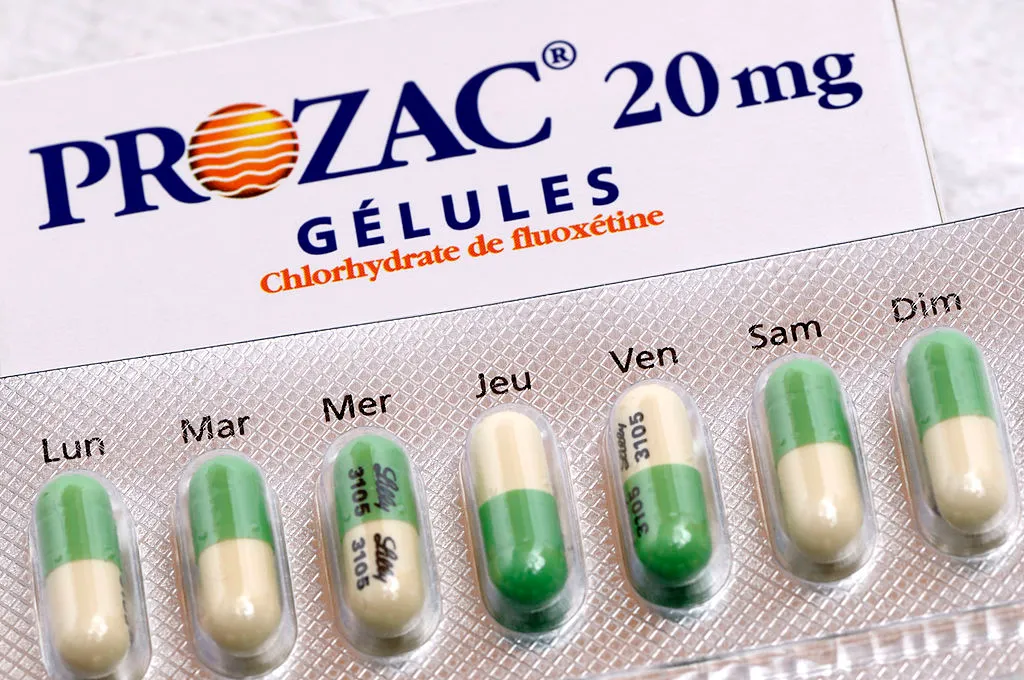
A TBI causes a chemical imbalance in the brain, which medication can help restore.
However, a cyclist who is unable to ride their bike loses their usual means to destress, according to Nohlin.
“Riding is our medicine, it's like our therapy,” he says.
“It makes us deal and cope with the world we live in because when we get on the bike everything just vanishes.”
Without cycling, Nohlin became depressed.
Along with psychotherapy, Nohlin gives some credit to psychedelic therapy – which involves microdosing psychedelic drugs, such as psilocybin – for his mental recovery.
Although studies have found these drugs reduce symptoms of PTSD, they may be illegal where you live.
De Crescenzo says taking selective serotonin reuptake inhibitors, a type of antidepressant, combated her own depression.
Take it slow
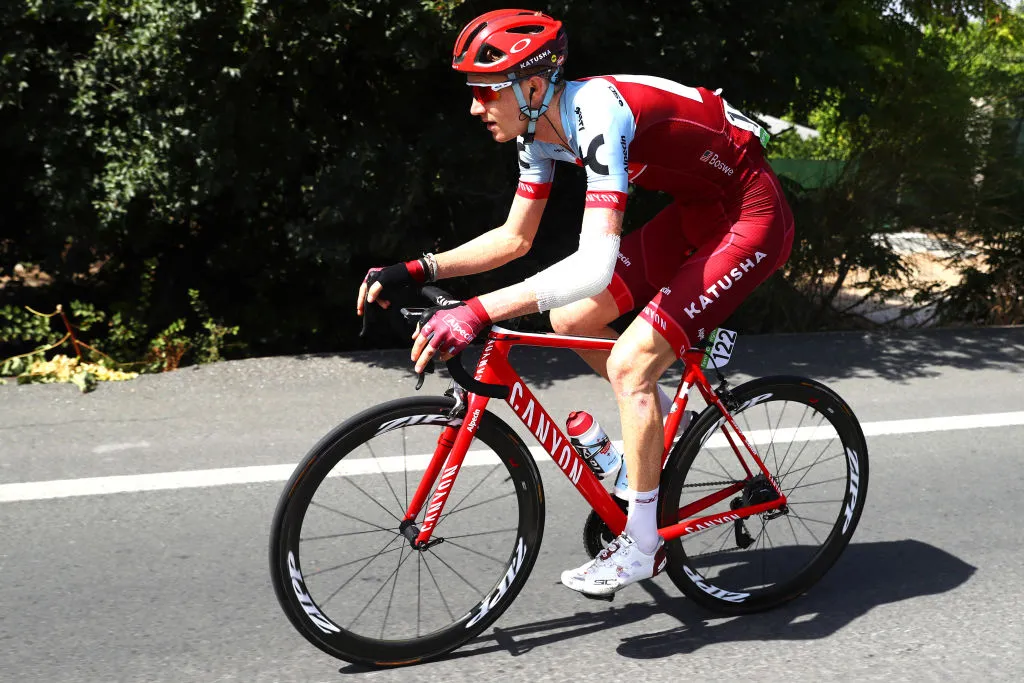
Boswell retired from professional road cycling in 2019 after sustaining his sixth career concussion in a crash at the Tirreno-Adriatico stage race.
Not until 2021 did he return to a peloton of sorts in a gravel race.
His largely traffic-free home roads of Vermont soothed his return to cycling outdoors.
Following the concussion, he had to regain the balance, hearing and spatial awareness required to ride outside.
His progress was far from linear.
“Some days I’d wake up feeling horrible and feel I wouldn’t be able to ride anymore,” he says.
“You need to be patient with yourself. When recovering from concussion, sometimes it’s two steps forward, three steps back.”
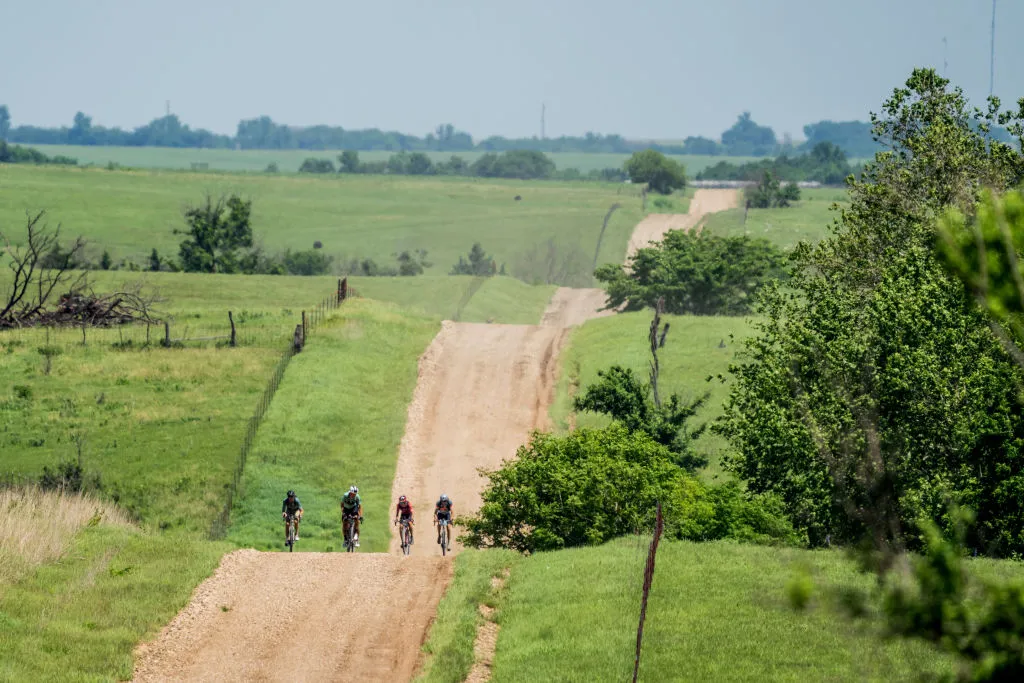
De Crescenzo says the slower speeds and car-free roads of gravel riding made it feel like a safer way to return to racing in 2018, two years after her crash.
When Nohlin successfully restarted cycling, he did so on a mountain bike off-road, then a large electric cargo bike before eventually feeling confident enough to jump on a drop-bar road bike.
Boswell, De Crescenzo and Nohlin all say that for a long time, they rode solo until they felt comfortable enough to return to group riding.
Be patient – and keep the faith
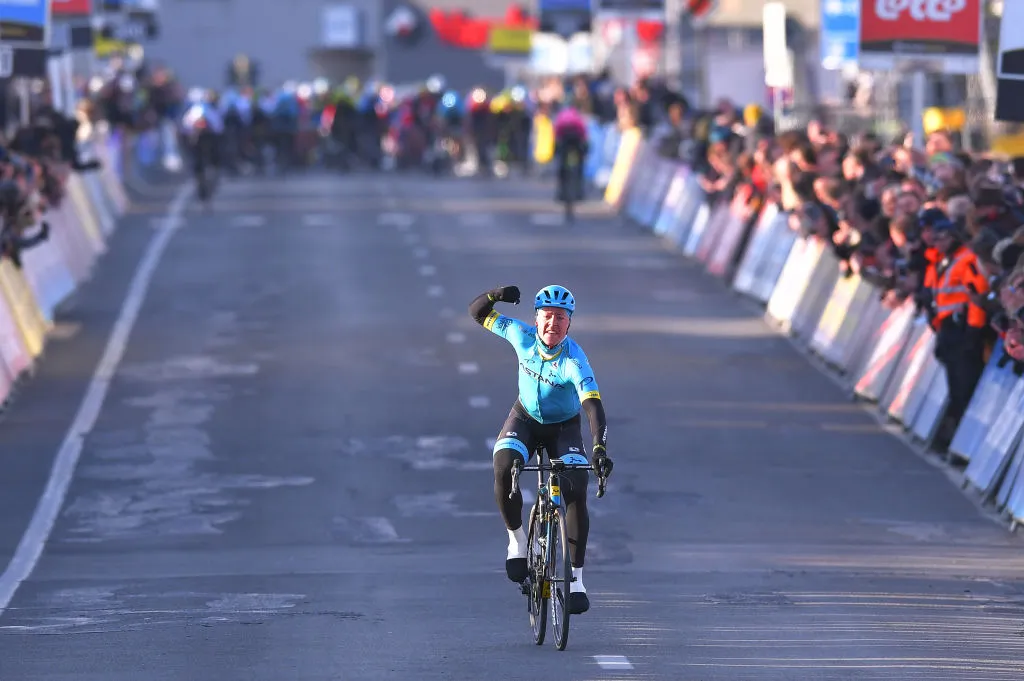
Michael Valgren won the 2018 editions of Omloop Het Nieuwsblad and the Amstel Gold Race.
In June 2022, he crashed during Route d’Occitanie, breaking his pelvis and ACL, MCL and meniscus in his knee.
Despite doctors telling him he would never race again, the Danish classics star returned to racing this summer.
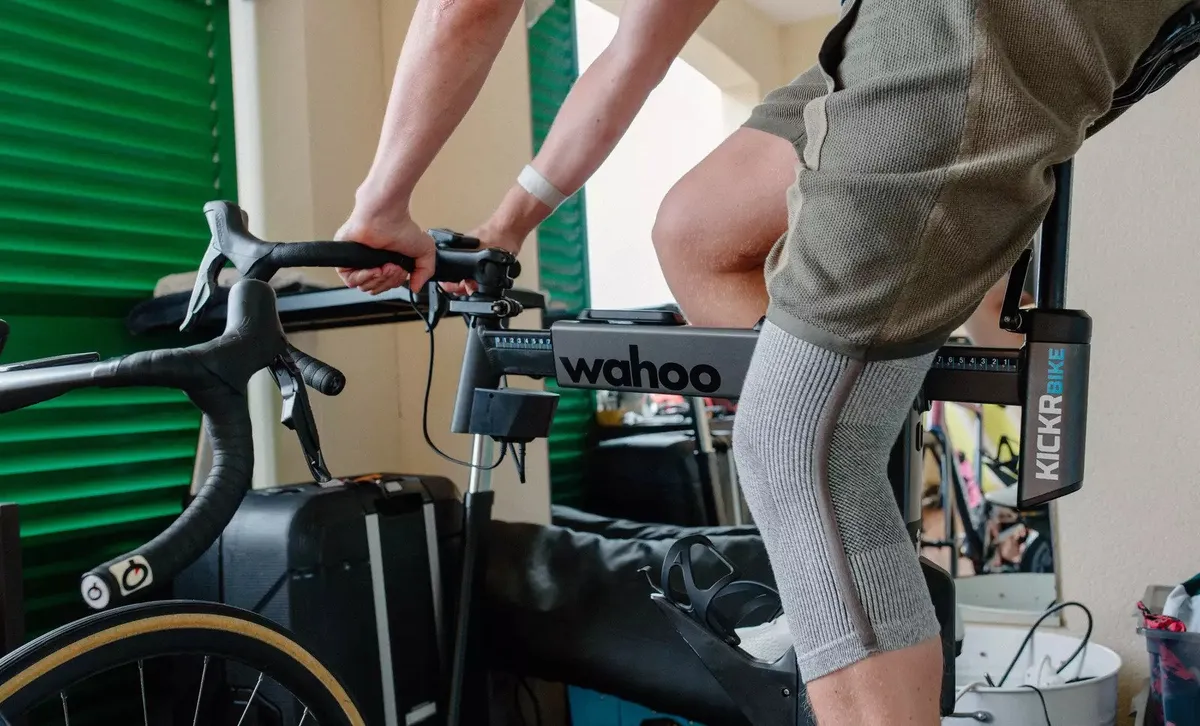
Speaking to the BikeRadar Podcast in March 2023, he said: “Recovery was on a flat line for six or seven months, then it spiked up.”
But he says it took half a year for him to be able to ride without pain.
“From month one to month three [of recovery], it was really tough,” says Valgren.
“We didn’t move anywhere at all, nothing helped.
“I was in pain and I couldn’t have a normal life. You try to stay positive, but most days were super-hard.”
Lose the ego
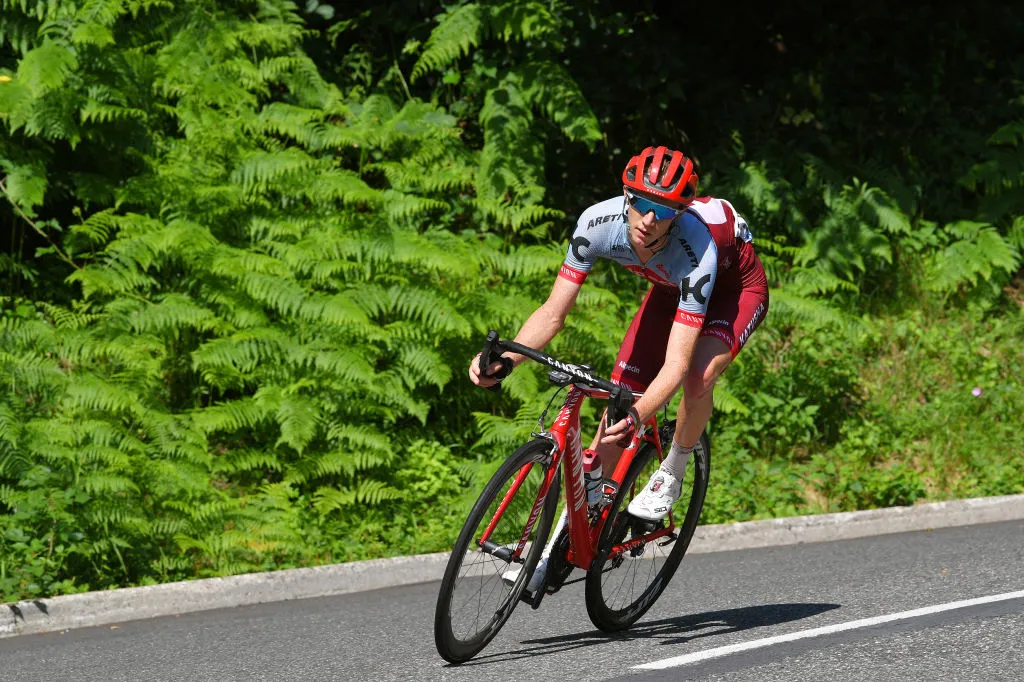
You can put some but not all of the mental trauma of crashing behind you. Heightened anxiety can make you more risk-averse, according to Boswell, but he has learnt to manage this through his training and racing.
He adds: “Part of it comes with age and maturity, but I’ve become more wise and conscious of the risks.
“I’ve noticed a huge difference and with that goes a loss of ego.”
Instead of racing down a descent to show off his skills, Boswell now meets his riding pals at the bottom.
In gravel racing, he takes a similar approach and tries to catch his competitors when the road flattens and opens up.
“On a weekend I’ve chosen to race, I don’t want to call my wife from hospital and say I’ve broken bones or hit my head again.
“Making a split [on a descent] isn’t a do-or-die situation anymore, ” he says.
If an elite gravel racer doesn’t descend as fearlessly as they did before a crash, there’s no shame in us being more cautious either.
Don’t feel guilty
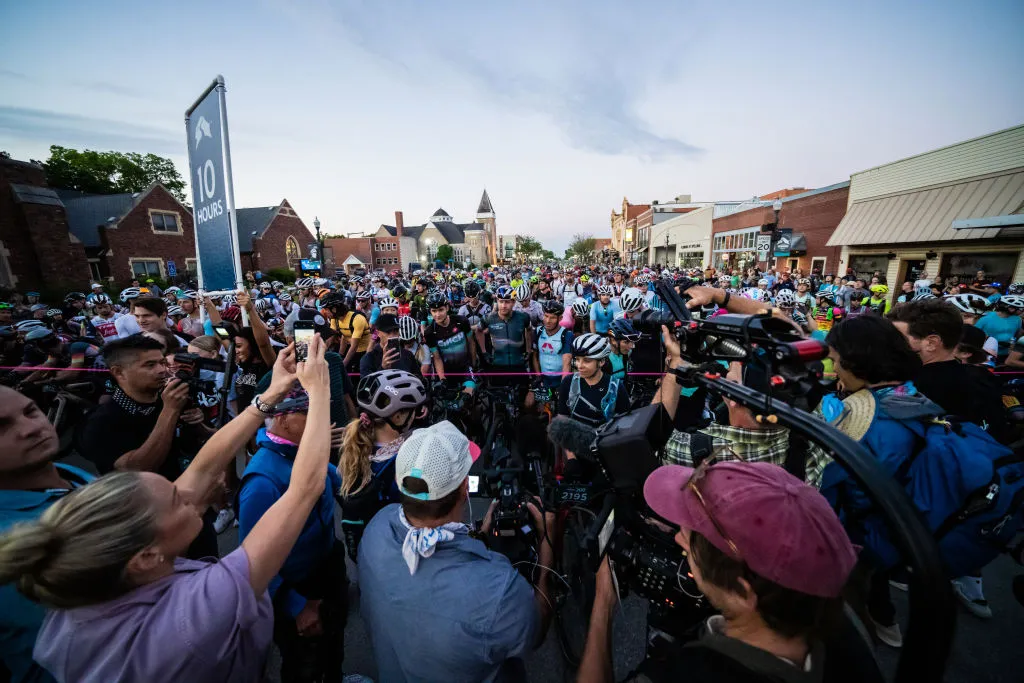
Another tricky aspect of mentally recovering from a crash is the impact your return to cycling has on your loved ones.
When De Crescenzo initially got back on her bike, her friends and family told her she was crazy.
“Are you really going to put us through this again?”, they asked.
But De Crescenzo’s friends and family reconciled to her racing again as they saw how much she enjoyed it.
She says: “They're very supportive of it now.
“They saw me being okay every day and that I was happy – I’m very happy being a bike racer.
“That's why I couldn't stay away from the bike because it just makes me happy.
“I think they just want me to be happy and they're all going be at Emporia [for Unbound].”
Unlike Boswell and De Crescenzo, most riders can't aspire to be on the elite start line of the world's most prestigious gravel race.
But after a traumatic cycling crash, everyone can aim to enjoy the sport again, with the backing of our loved ones.
